Idling Your Vehicle is Currently a Crime in Wyoming, but That May Change
Proposed legislation would eliminate little known and rarely enforced law
Feb. 7, 2023
In the Town of Jackson, drivers are encouraged to avoid idling their vehicles. Wyoming law currently makes it illegal to leave a vehicle unattended and idling on a public road, but that would change under a bill that recently passed the Wyoming House. (Courtesy photo from makenzie cooper via Unsplash)
By CJ Baker
Special to the Wyoming Truth
On cold days this winter, many Wyomingites have warmed up their vehicles before heading to work or other destinations … and unwittingly become criminals.
Although it’s a common practice, an obscure state law bars drivers from leaving their vehicles unattended and idling on public roads. However, a bill now making its way through the Wyoming Legislature would decriminalize the practice.
State Rep. Daniel Singh (R-Cheyenne) says a state law that prohibits vehicle idling is outdated and should be repealed. His proposal cleared the House almost unanimously. (Photo by Michael Smith)
“I believe that we can do the citizens of Wyoming a favor by passing this,” said Rep. Daniel Singh (R-Cheyenne), the sponsor of House Bill 239. Singh specifically mentioned those who want to warm up or cool down their vehicle, plus those with diesel engines and delivery drivers.
At a House Minerals, Business and Economic Development Committee meeting last week, the freshman lawmaker described legalizing idling as a matter of individual rights — of “being able to exercise autonomy over our personal property in that way.” Given modern technologies like remote start devices, “I feel like this is an obsolete piece of statute,” Singh added.
The anti-idling law dates back to 1955, when Wyoming adopted a version of the national Uniform Vehicle Code. It requires drivers to shut off the engine and remove the key before leaving a vehicle on a public road. (It doesn’t apply to driveways and other private property.) The statute also requires drivers to properly park their vehicle by setting the brake and, if on a grade, turning the front wheels toward the curb or side of the road. Violations are a misdemeanor offense, punishable by an up-to-$200 fine.
While there’s no hard data, it’s safe to say the law is frequently broken — in committee, Rep. Jon Conrad (R-Mountain View) confessed to being “a criminal idling my vehicle” — and almost never enforced. Despite being on Wyoming’s books for nearly 70 years, Singh found only one instance in which a person was cited under the statute, and it appeared to stem from the driver not setting the brakes.
As part of an educational campaign to reduce idling, the Town of Jackson has posted signs on town streets. Over a decade ago, the town decided not to criminalize idling. (Courtesy photo from the Town of Jackson)
In that 2022 incident, “the vehicle was unattended, the engine was running, the brakes weren’t properly in use and it ended up sliding and colliding with another vehicle,” Singh explained. “But that’s the only time it’s ever been used.”
HB 239 won the unanimous support of the minerals committee and did nearly as well in the House, passing on a 59-2 vote. Still, there was at least some hesitance.
“I got an email from someone who said, ‘Please don’t pass this bill because my neighbor leaves his two diesel semis idling every morning and it keeps me up,’” Rep. Don Burkhart (R-Rawlins) reported. “I think that’s the other side of someone actually getting cited for this.”
Regardless of whether it’s a criminal offense, unnecessary idling continues to be discouraged for multiple reasons.
In a 2021 Facebook post, the Laramie County Sheriff’s Office noted it was illegal to leave a vehicle unattended and running, but “more importantly, it gives people an easy opportunity to take your vehicle without consent.”
Meanwhile, the U.S. Department of Energy advises that idling “reduces your vehicle’s fuel economy, costs you money and creates pollution.” The department estimated in 2015 that the practice wastes about six billion gallons of fuel a year.
The Town of Jackson made some of the same points about waste, health and safety in a 2010 “idle-free resolution” that encourages citizens to avoid idling their vehicles. Jackson leaders opted for an educational approach instead of cracking down idling with an ordinance.
The City of Rawlins has taken a tougher stance. If someone calls police to report an unattended, idling vehicle, the driver has five minutes from the time officers arrive to shut it off or move it. Otherwise, they risk a citation. Rawlins’ ordinance also allows police to “immediately” cite repeat offenders; even if the driver is in the vehicle, idling for over 20 minutes is prohibited.
While HB 239 would legalize unattended idling in Wyoming, municipalities like Rawlins can continue to bar the practice in their jurisdictions. Additionally, drivers would still need to set their brakes and wheels before leaving their vehicle on a Wyoming road.
The bill is now being considered by the Senate.
The Wyoming Truth is a nonpartisan, nonprofit news operation dedicated to helping the community and fighting for the rights of local citizens. To sign up for a free subscription, or to make a donation, please go to www.wyomingtruth.org. Other media outlets are free to run this article as long as they credit the “Wyoming Truth.” If you have any tips about this issue or others, or for more information about the Wyoming Truth, contact us at info@wyomingtruth.org.



